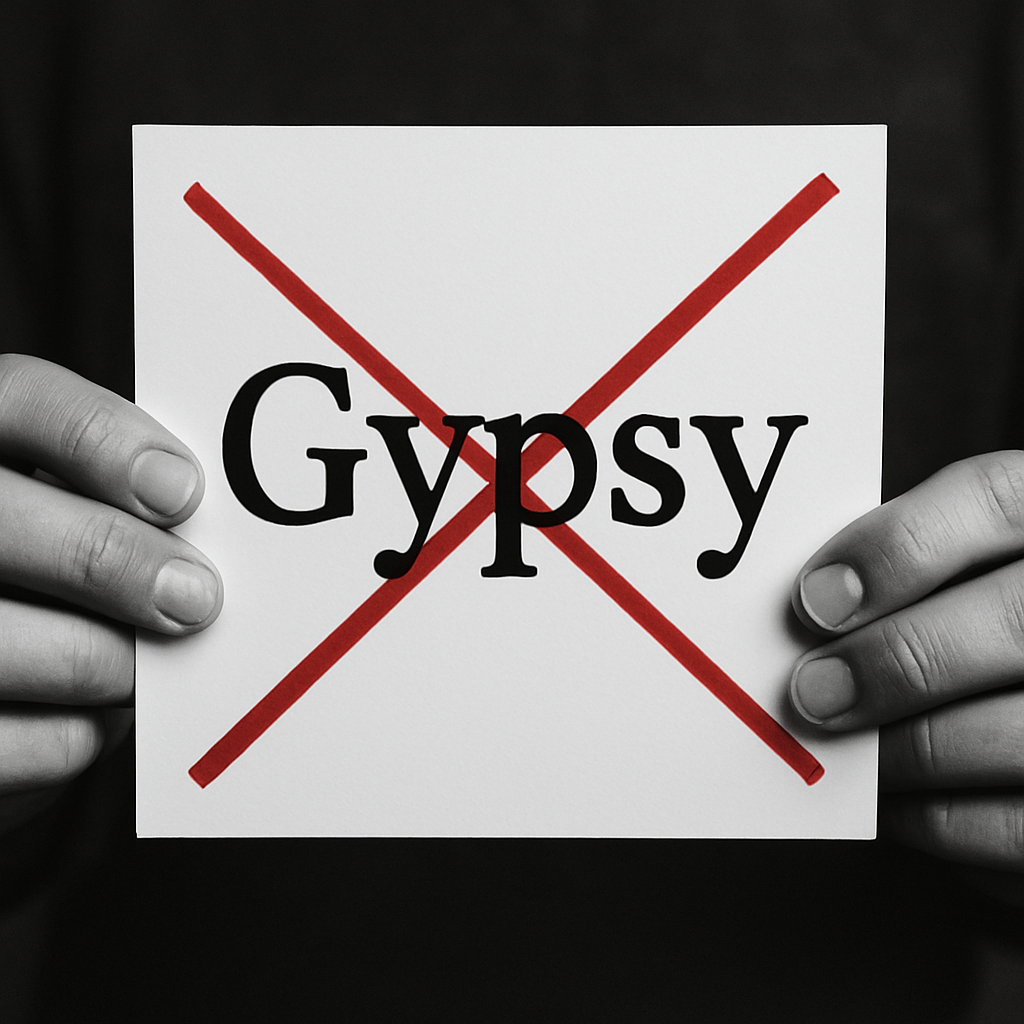Features ROMI.HR
/The names given to Roma by local communities throughout history, often based on their occupation or appearance, have over time developed pejorative connotations, leading many Roma to reject these labels in favor of self-identification as "Roma".
Names given to Roma by local people from ancient times due to their occupations or appearance have become pejoratives over time and are not accepted by many Roma today. The term "Gypsy" is one of many names given to Roma community by others. This word sometimes essentially carries a racial connotation. When we talk about a word Gyspy, in historical documents from the past, then we should respect those documents and should use as it is. But we should give an additional explanation.
Known as Rom, Gypsy, Zigeuner, Gitanos, Heiden, Cigani and others in different countries, Roma has been given different names in different places and times. However, it is observed that names given to the Roma worldwide often carry pejorative meanings that are derogatory, insulting, and contemptuous.
Therefore, Roma prefer to call themselves "Roma". The gender name "Rom" means "man, person" ("Romni" - "woman"). This name is possible to come from the Sanskrit word "Domba", which is the name of the lowest caste in India. After migrating from India, this name is thought to have changed to Dom, Lom, Rom. In Western Anatolia, Marmara and Trakya in Turkey, the word "Roma" is used, and in Ağrı, Van, and Erzurum, "Lom" and "Dom" are used.
To sum up, we should note that the expression "Çingene", which is often used in Turkey today, has a derogatory meaning in some cases, and most of Roma do not want to be called by this name. However, sometimes researchers use this expression, which has been used in official records for hundreds of years, without implying any pejorative meaning, in their books, articles, and studies, and try to remove "Çingene" from its redundant meanings.
Because people sometimes attach cheeky, rude, ugly, quarrelsome, nomadic meanings to this expression. The image of the Roma in mainstream culture is often portrayed in newspapers, magazines, and television as either "belonging to a different culture", or emphasizing "negative characteristics." The written and visual media's misrepresentation of the Roma, along with derogatory, exclusionary, and accusatory articles, as well as stereotypical language and attire, contribute to the construction of their identity. Media portrayals focus on entertainment, alcohol addiction, fighting, earning money through unofficial means. This misrepresentation significantly influences the dominant group's perception of the Roma.
When we talk about Turkey we even come across these negative concepts in official laws. In 1934, Article 4 of the Immigration Law No. 2510 of Turkey states that "Those who do not belong to Turkish culture, anarchists, nomadic Roma, spies and those expelled from the country cannot be accepted as immigrants to Turkey." With this, we witness that Roma is categorized as criminal not only by the society, but also by the Republic of Turkey.
In many cases, we see Roma defending themselves as different from "Çingene" and calling themselves Roma. The underlying reason for this is, of course, the negative connotations of the word, as well as the Roma's desire not to be discriminated by the “Gaco“ (non-Roma). Because according to Roma, the word "Roma" means the more reliable, one of the local population, the one who is more accepted. With this, we see that Roma have to fight not only for social life, human rights, basic rights, but also for their own name. To be a part of society, to participate in social life, to be described without insults, of course, should be the right of every person. For this, it is necessary to deal with the possibilities of integration, not the assimilation of Roma, and also to change the humiliating and discriminatory attitude towards Roma.
In Turkey, as in other countries, the negative meanings of the name „Çingene“ constitute an important area of discussion. It should be taken into consideration that the Roma, Dom and Lom groups are not the only producers of the negative adjectives attributed to them. It is important for each group to have its own original naming in the context of culture and identity. This approach can be perceived as a richness in terms of both ethnic groups and cultural diversity.
The quote from www.çingeneyiz.org reflects the historical journey of the Roma people, tracing their struggle with marginalization and their pride in their identity, despite centuries of discrimination and hardship:
The Byzantines called my people “athinganoi” 1000 years ago. This meant untouchable. (…) From now on, people called us this in every country we went to. Everyone repeated our name in their own language. Zigeuner, Cigani or Gypsy... They said we were untouchable... They were afraid of us. We were different. We were poorer. We were freer. But we were human. Just like them. They were not aware of this. They didn't want to work with us, live with us, talk to us. While we were giving them a life with the beautiful crafts we created, they threw us into the forgotten corners of their cities. Poverty fell upon us like an endless curse. We suffered a lot. My ancestors looked into people's eyes screaming to get rid of these injustices; sometimes begging! 'We are not Çingene, we are humans' In one of the languages spoken by Gypsies, human meant Rom. They also told people that we are Roma, meaning we are no different from you. (…) Since we have lived life with the taste of death for thousands of years; From now on, no power can touch our sacred freedom, nourished by our pure humanity. I am an untouchable. I'm proud of what I am. Let everyone know! “I am a Çingene.”
 Back to Features
Back to Features













